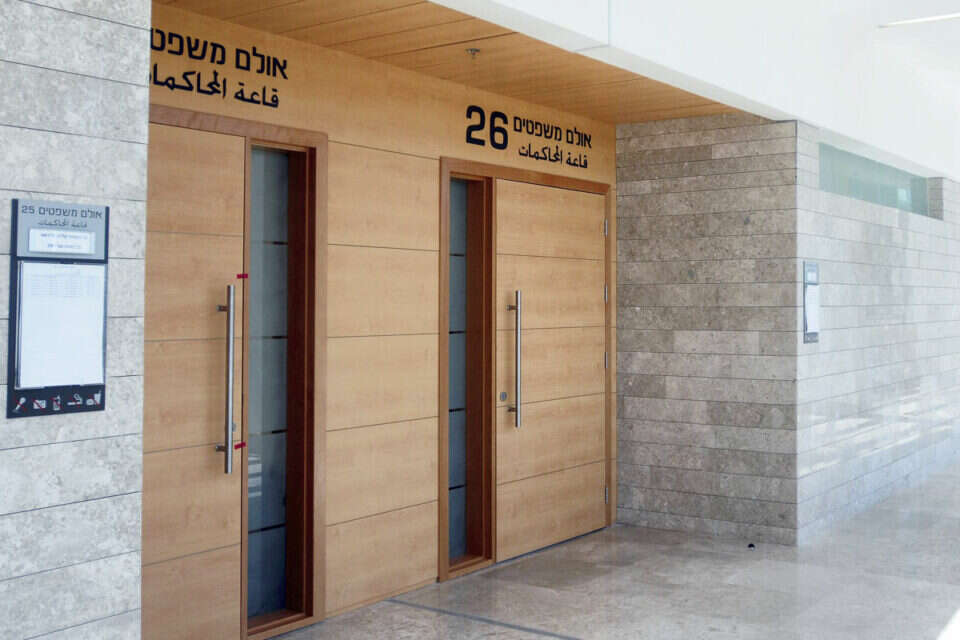Shortly after I began my term as Minister of Justice, I encountered lawyers who complained to me about the serious behavior of certain judges in the halls. I visited the courts and sat for a while during trial hearings, but I soon realized that a minister's visit changed the courtroom. I decided not to continue this, and to go to the courtrooms alone, and in disguise. I had a list of judges whose conduct I had been told was manifestly inappropriate, and I visited the Magistrate's and District Court, the Transport Court, and the Labor Court, until I was identified, and my unofficial participation became public.
The judges' representative in Israel asked to meet with me urgently. It was headed at the time by Judge Micha Lindenstrauss. He and the members of the delegation discussed me in a rutchin. They argued that it was inappropriate for a justice minister to enter the courtroom in disguise, that the days of Harun al-Rashid (the Abbasid caliph known for dressing up and wandering around the markets to keep up with the mood) were gone, and that they were unwilling to tolerate a situation in which judges became suspicious.
I told them what I saw in some of the halls where I sat. I said I couldn't believe my eyes: dismissive behavior by some of the judges, condescension, raising their voices, and fines imposed on lawyers for every sentence they uttered, which they didn't like. I said that the place of these people is not in the justice system. The judges were surprised by the stories I shared with them, but they couldn't claim to have made things up. I came to the system out of great appreciation for the Israeli judicial system, which has become a model and example for democracies around the world, and I feared harm to it.
The next step was a long conversation with then-Supreme Court President Aharon Barak. I told him the story. We talked about different ways to deal with the phenomenon of judges who lack judicial temperament. Ideas were raised, such as appointment for a limited period, after which judges could be appointed until the age of 70, and other ideas, but what was agreed between us was to prepare a process of monitoring the behavior of the judicial candidates over the course of several days, during which they would be together, accompanied by jurists, psychologists and other experts. It was agreed between us that the opinion on each of the candidates would be made available to the subcommittees of the Committee for the Selection of Judges for the plenum of the Committee. As for the judges, whose behavior I was amazed at, none of them remained in their seats, mainly as a result of personal conversations with them and their understanding that the system would not be able to accommodate them.
The "Judging Suitability Course", which was born in the wake of that event, is an effective tool in identifying weak points among judicial candidates. No one was surprised to discover, for example, that former judge Etty Karif, who was elected to her position as part of former Justice Minister Ayelet Shaked's courageous campaign to locate right-wing and conservative judges, received a failing grade at the end of the course. Shaked ignored the negative opinion, and with it - most of the committee members. Reform of the judicial system should—at least—ensure a more binding status for the Commission's grades.
The regime coup laws of Yariv Levin and his colleagues must be shelved. There is no need to change the composition of the Judicial Selection Committee, there is no room for an Override Law (unless it is a very careful formula within the framework of Basic Law: Legislation), nor is there room for the current composition of the Knesset to determine a constitution for Israel, because the result of this effort could be catastrophic.
All that needs to be done is to significantly increase the number of judges in order to reduce the torture of justice in Israel, and to examine other ways to screen candidates for the judicial seat, without the process being tainted by any politicization. This is a significant and necessary reform.
Wrong? We'll fix it! If you find a mistake in the article, please share with us

